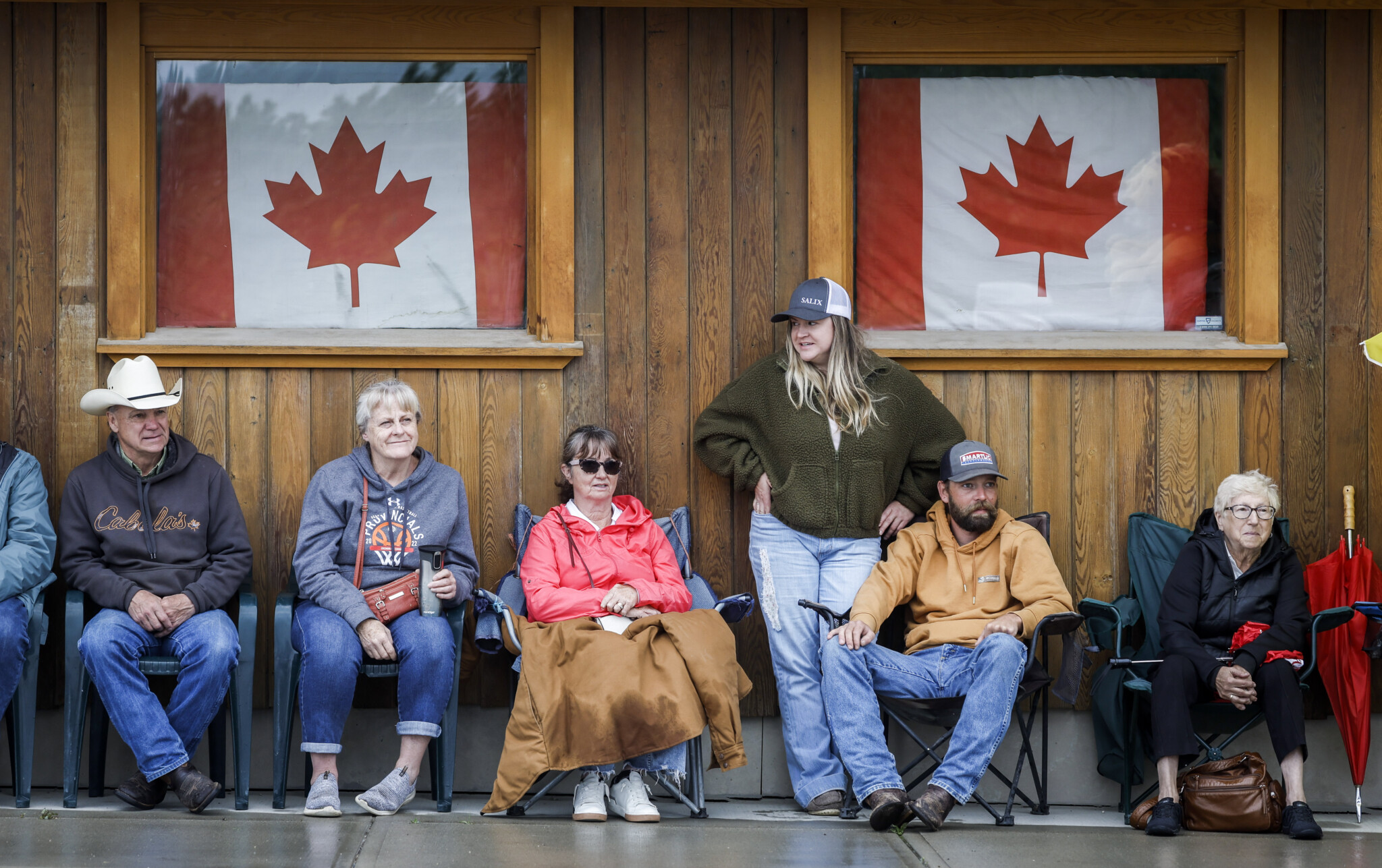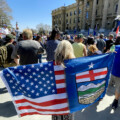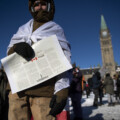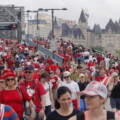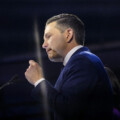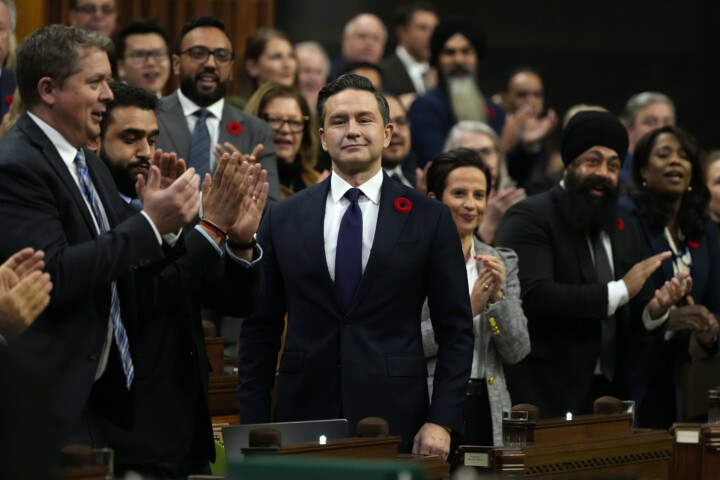“Taxes. Taxes. Say it twice. Ack, who am I kidding? We pay it thrice.”
The rhyme drew awkward applause in Medicine Hat. It was part poetry, part protest from a member of the audience. But the underlying message to Ottawa was a familiar one.
And it showed in every town hall.
As University of Calgary economist Trevor Tombe reminded the crowd, provinces have been griping about taxation and wealth redistribution since Confederation.
“Having regions raise concerns about federal transfers and seeking reforms to those transfers is entirely normal and a common feature throughout Canadian history,” he said.
These are the sorts of moments that have unfolded across Alberta over the past three months in the UCP government’s Alberta Next town halls—10 events billed as consultations on equalization and transfers, pensions, constitutional amendments, immigration, taxation, and policing. The tour wrapped up this week with a final stop in Calgary.
More often, the tour played out like open-mic nights where frustration, humour, anxiety, and plenty of cheering and jeering shared the stage.
Some accused Premier Danielle Smith of showing them propaganda videos. Others praised the road show as a “lovely” display of democracy in action.
And typical of Alberta pastime, there was no shortage of chatter about Quebec—admiration for its ability to chart its own course, and ire over what many see as its perennial special treatment.
But some moments were more uncomfortable than others, especially on the topic of immigration.
In Grande Prairie, a self-identified immigrant from Germany asked Smith why her government was “vilifying and scapegoating immigrants” by floating the idea of withholding social programs from non-citizens or non-permanent residents it doesn’t approve of.
A short while later, a woman claimed her grandchildren were denied jobs because “they were white.”
“They weren’t dark and they were not LGBQ,” she said sternly, to mild applause. “Help us out. How do these kids get jobs?”
Folks at the microphone were regularly cut short by moderator Bruce McAllister, a former broadcaster turned Wildrose MLA turned senior political staffer. And when the crowd got rowdy, he wasn’t shy about dressing them down.
“OK, OK, I’m just going to ask for a collective inhale and exhale,” he told a restless Edmonton audience, waving his hands up and down before ordering one heckler to “knock it off or I’ll order somebody to get you out of here.”
“Jesus,” he fumed. “Like you don’t reward a toddler in a grocery store and give them what they want!”
In Calgary, an adolescent was cut off mid-question when he pressed the government about the ongoing labour dispute with teachers.
“I know you’d love some chaos, but your parents should turn you over your knee,” McAllister said to the boy, prompting boos from the audience—a comment he would later apologize for.
“That’s rude,” exclaimed the next speaker. “That is disgraceful!”
“You’re dismissing a teenager,” another woman heckled from her seat.
McAllister also kept a close watch on the 16 panelists who ranged from politicians to academics, prodding them to “keep it tight” and deliver shorter answers—interruptions that sometimes drew gentle pushback from the premier and her MLAs.
“For once I’m going to keep talking for a minute, Bruce,” Tara Sawyer, the newly elected representative for Olds-Didsbury-Three Hills, said with a smile during one such interaction.
Regardless, the sessions stretched close to three hours.
Behind the theatrics, though, was a serious purpose.
The government cast the Alberta Next tour as a chance to test Albertans’ appetite for more provincial autonomy—or, as Smith repeatedly put it, “a sovereign Alberta within a united Canada.”
The ideas ranged from withdrawing from the Canada Pension Plan to replacing the RCMP with a provincial force, and even pushing constitutional changes.
Most striking was the proposal on federal transfers.
Rather than having Ottawa collect the lion’s share of federal and provincial taxes and redistribute them with strings attached, the Alberta Next video suggested flipping the formula to allow provinces to collect 60 percent of taxes directly, while remitting a small portion to Ottawa to cut the feds out as a “middleman.”
“Ottawa would in turn be able to end most transfer programs to the provinces along with all the strings, bureaucracy, and waste attached to them,” the video proclaimed, adding that the smaller remittance would still allow the federal government to help out small provinces and territories like those in Atlantic Canada.
As expected, attendees were always a self-selected group of vocal advocates on either end of every issue.
“I understand governance is a hard job. You have trans kids to bully,” one man said sarcastically in Edmonton. “But I want to ask—why are you choosing treason as opposed to helping other Canadians?”
“Don’t be a jerk!” McAllister shot back before signalling the next speaker.
That kind of back-and-forth sometimes turned meta. One woman even told the room that her favourite part of the panels was simply watching McAllister spar with the crowd. It’s a reminder that, at times, the Alberta Next tour felt more like political theatre than policy consultation.
They could even be entertaining, if you set aside the heavier themes of separatism and culture wars.
But what is clear is that for a sizable portion of attendees, they want action in the form of a referendum, as foreshadowed in the very premise of these town halls.
Smith’s answer, repeated throughout the tour, was that any step as significant as leaving the CPP or any other big-ticket ideas would indeed go to a vote.
That kind of promise never fails to get people all fired up.
